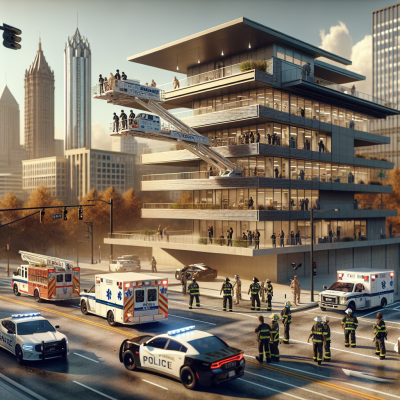
Law Enforcement and Emergency Services
Structure of Atlanta's Police Department
The Atlanta Police Department (APD) is a key pillar in maintaining public safety in the city. It functions as a structured organization with various divisions and specialized units that work collaboratively to enforce law, maintain order, and prevent crime. At the head is the Chief of Police, who is responsible for overall policy direction and leadership. Underneath the Chief, multiple Assistant Chiefs oversee distinct areas such as Field Operations, Criminal Investigations, and Support Services.
Field Operations Divisions are geographically oriented and are further subdivided into zones that cover different parts of the city. Each zone is headed by a Zone Commander responsible for local patrols and response strategies. Specialized units within the APD include the Homicide Unit, Drug Enforcement, SWAT, and Cyber Crimes, each tasked with focusing on specific types of crime or operational needs.
The Professional Standards Unit ensures that officers adhere to ethical codes and public trust, addressing internal investigations and officer conduct. Additionally, the department includes a robust training academy to ensure ongoing education and preparedness for police officers.
Roles and Responsibilities of Emergency Services
In Atlanta, emergency services encompass not only the police but also fire and emergency medical services (EMS), each playing a critical role in public safety and disaster response. The Atlanta Fire Rescue Department (AFRD) handles fire-related emergencies, hazardous materials responses, and rescue operations. AFRD is structured similarly to the APD, with a chain of command and specialized units, such as the Swift Water Rescue Team and Fire Investigation Unit, to address specific challenges.
Emergency Medical Services, typically part of the Grady EMS, focus on providing rapid medical response, life-saving care, and transport to medical facilities. They work in tandem with police and fire departments to ensure comprehensive response during emergencies.
Another critical component is the Office of Emergency Management, which coordinates planning, response, and recovery efforts during large-scale emergencies or natural disasters. This office ensures cross-agency communication and resource allocation, supporting all other emergency services in maintaining public safety.
Community Policing Initiatives
Community policing initiatives in Atlanta strive to build stronger relationships between the police force and the communities they serve. These initiatives focus on increasing trust and collaboration, ultimately aiming to prevent crime and improve quality of life. Key strategies include assigning officers to specific neighborhoods to foster familiarity and communication with residents and local businesses.
Programs like the APD’s Police and Citizens Together (PACT) promote neighborhood watch efforts, encouraging community participation in safety efforts. The APD also runs youth engagement projects, collaborating with educational institutions and local organizations to deter young people from joining gangs or engaging in criminal activity.
Additionally, the Citizens Police Academy provides residents with firsthand experience and insight into police operations, fostering understanding and partnership. Community Liaison Officers are appointed to address specific concerns and work directly with neighborhood associations and civic groups, ensuring that the police remain responsive to the evolving needs of the community.
Overall, through these combined efforts, the APD and emergency services in Atlanta aim to provide a safe, secure, and supportive environment for all its residents and visitors.









